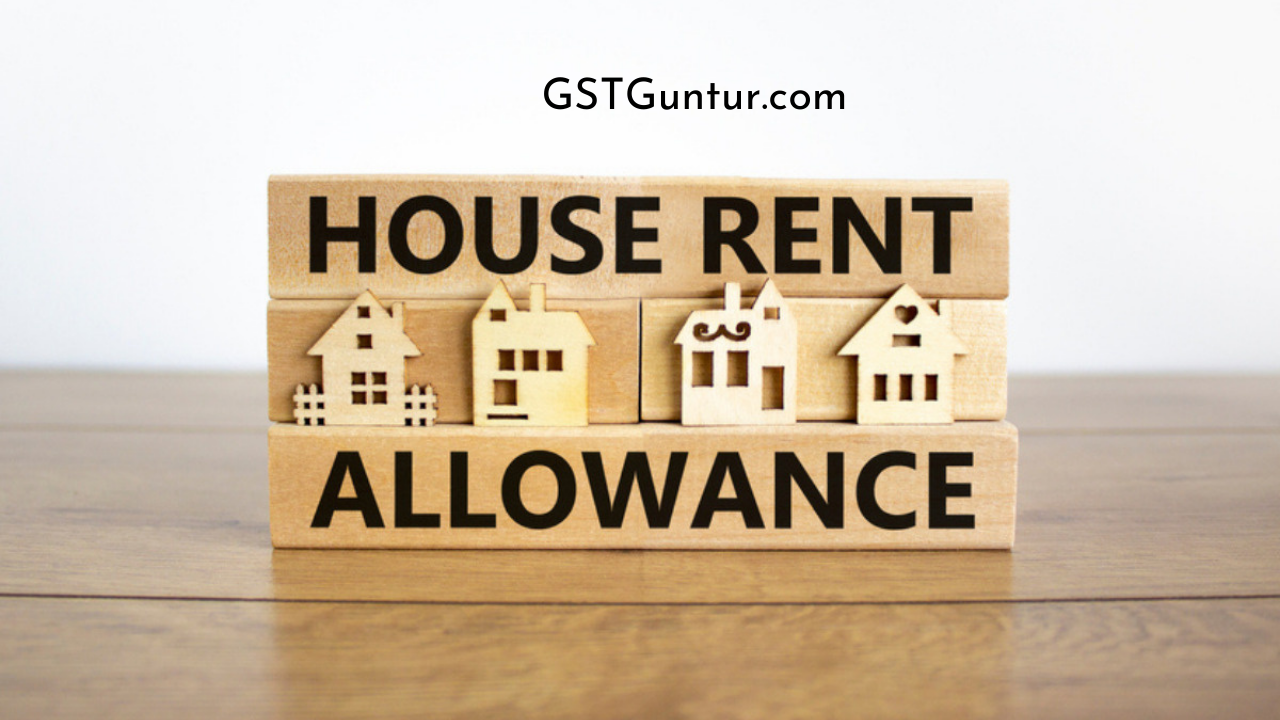HRA Exemption Calculator To Calculate One’s HRA Deduction: House Rent Allowance, or well-known as HRA, is an amount that employers pay to employees as a part of their salaries. This is done as it helps provide employees with tax benefits towards the payment for accommodations every year. How much HRA has to be paid to the employee is made by the employer based on a number of different criteria such as the salary and the city of residence.
What Is HRA?
HRA or House Rent Allowance is the allowance given by an employer to their employee as compensation for the house rental expenses paid by the employee. It forms a part of their salary paid by the employer to the employee.
How Is Exemption On HRA Calculated?
Exemption on HRA is calculated according to 2A of Income Tax Rules. According to Rule 2A, the least of the following is exempted from one’s salary under Section 10(13A) and doesn’t form part of the taxable income.
- Actual HRA received from the employer.
- For individuals residing in metro cities: 50% of the (Basic salary + Dearness allowance)
- For individuals residing in non-metro cities: 40% of their (Basic salary + Dearness allowance)
- The Actual rent paid minus 10% of their (Basic salary + Dearness allowance)
How Is One’s HRA Taxed?
When the payment of rental expenses is higher than ₹ 1,00,000/- annually, it is compulsory for the employee to provide the PAN number of their landlord when filing the income tax returns.
Let’s understand the HRA component, which would be exempted from one’s income tax by an example.
Ms. A, employed in Delhi, has rented an accommodation for which she pays a monthly rent of ₹25,000. She receives a Basic Salary of ₹45,000 and DA of ₹7,000 monthly, which forms a part of her salary. She also gets an HRA of ₹ 1 lakh from her employer during the year.
| Serial Number | Particulars | Amount |
| 1. | Actual HRA received | Rs. 1,00,000 |
| 2. | 50% of [(45,000+7,000)*12] | Rs. 3,12,000 |
| 3. | Actual rent Rs. 3,00,000 minus 10% of the [(45,000+7,000)*12] | Rs. 2,37,600 |
| 4. | HRA deduction = Least of 1, 2, 3 | Rs. 1,00,000 |
Thus, Rs. 1,00,000 would be exempt from the salary u/s 10(13A).
Furthermore, if the employee is paying rental expenses but doesn’t receive HRA allowance as a part of their salary from the employer, or if the person is paying the rental expenses but doesn’t have salary income, the benefit of paying rental expense could still be claimed under the Section 80GG of the Act.

Basis of HRA Calculation
HRA or House Rent Allowance serves as a vital component of one’s salary. It states the total amount given by the employer towards the employee’s accommodation as rent.
The amount allocated for HRA proves beneficial for the employee as it is calculated for tax deductions in a particular financial year. Also, HRA helps in reducing the taxable income that one is liable to pay.
The tax benefits related to HRA are only applicable to the salaried individuals who stay in any rental accommodations. If an employee stays in their own house, they are not eligible to claim this amount for tax deductions.
Calculating HRA is based on several factors, such as the entitlement to 50% of the basic salary in case the employee is living in a metro city and 40% if he/she stays in other cities. The calculation for HRA of tax benefit is considered under any of the following three stated provisions:
- The actual rent that is paid should be less than 10% of the basic salary.
- If you’re staying in a metro, 50% of the basic salary and 40% if you live in a non-metro city.
- The actual amount allotted by the employer is the HRA.
- The least of the amount as mentioned earlier will be considered for tax deduction from HRA.
Claim Rules for HRA
The rules which are applicable for the HRA claims are stated as follows-
- One’s allotted HRA cannot exceed more than 50% of your basic salary.
- As a salaried employee, one cannot claim the total rental amount one is paying. One’s exemption will be based on the least of the below-mentioned options:
- The actual amount given by the employer is the HRA.
- Genuine rent paid less than 10% of their basic salary.
- 50% of the basic salary in case the employee stays in a metro city (40% for a non-metro town).
- One can also avail of the tax benefits of HRA along with a home loan.
- If one stays with their parents, they can pay rent to their parents and collect a receipt for the HRA claim. However, similar rules do not allow one to pay rent to their spouse and claim a tax exemption.
- If the annual rent of one’s accommodation exceeds Rs.1,00,000, then showing the landlord’s PAN card is compulsory. Also, if the landlord doesn’t have a PAN card, they can provide a self-declaration.
- Another vital rule is that if the landlord is an NRI, one must deduct 30% tax from the rent amount, which needs to be declared.
